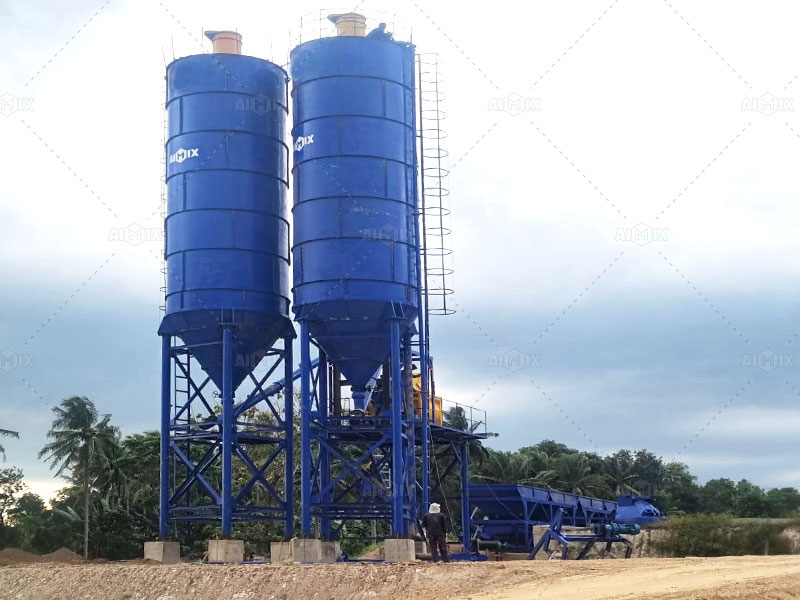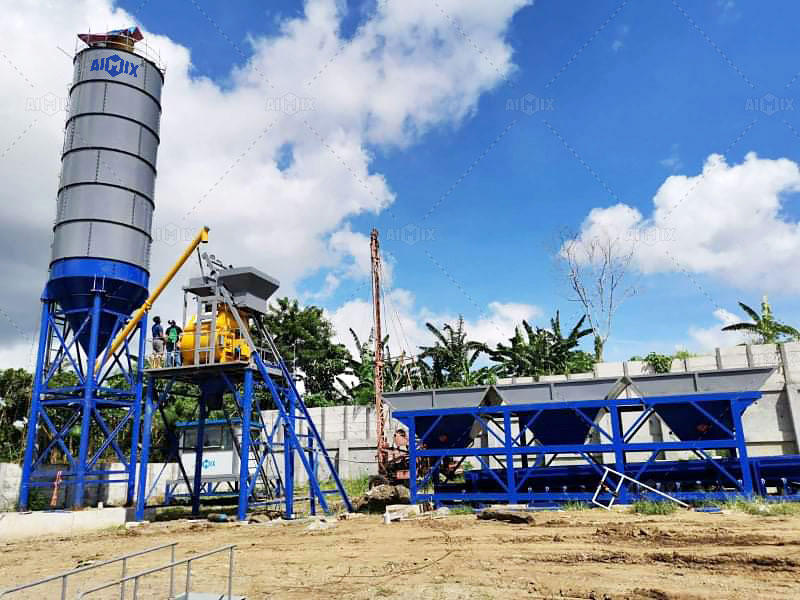A concrete mixing station, also known as a batching plant or concrete plant, is a vital component in the construction industry, facilitating the production of high-quality concrete for various applications. Operating this complex machinery requires careful attention to detail and adherence to best practices to ensure efficiency, safety, and the delivery of consistent, durable concrete mixes.
Proper Training and Certification
One of the foundational aspects of operating a batching plant in malay is ensuring that the personnel involved are adequately trained and certified. Operators should have a comprehensive understanding of the equipment, including the batching plant, mixers, and any auxiliary systems. Proper training not only enhances operational efficiency but also promotes safety by minimizing the risk of accidents and equipment damage.

Routine Maintenance and Inspection
Regular maintenance and inspection are paramount to the smooth operation of a concrete mixing station. Scheduled checks of all components, including the batching equipment, conveyors, mixers, and electrical systems, help identify and address potential issues before they escalate. Lubrication of moving parts, inspection of belts and conveyors, and calibration of weighing systems are integral parts of routine maintenance.
Accurate Batching and Proportioning
The heart of the concrete mixing station is the batching process, where various materials like cement, aggregates, water, and admixtures are precisely measured and mixed. Accurate batching is critical to achieving the desired concrete mix consistency and strength. Regular calibration of weighing systems and diligent monitoring during the batching process are essential to prevent deviations from the intended mix design.
Quality Control and Testing
Implementing a robust quality control system is vital for producing high-quality concrete. Regular testing of raw materials, especially aggregates and cement, ensures that they meet the specified standards. Additionally, conducting frequent slump tests and compressive strength tests on the concrete produced provides valuable feedback on the mix’s performance and helps identify any adjustments needed in the batching process of the ready mix plant.

Optimizing Energy Consumption
Efficient energy use is not only environmentally responsible but also economically advantageous. Concrete mixing stations often consume significant amounts of energy. Therefore, operators should explore ways to optimize energy consumption, such as investing in energy-efficient equipment, implementing smart scheduling to take advantage of off-peak electricity rates, and incorporating renewable energy sources where feasible.
Environmental Compliance and Sustainability
As environmental concerns become more pronounced, mobile batching plants must adhere to environmental regulations and adopt sustainable practices. This includes proper waste management, recycling of water used in the batching process, and exploring eco-friendly concrete mixes with supplementary cementitious materials.
Safety Protocols and Emergency Preparedness
Safety should always be a top priority in operating a concrete mixing station. Establishing and enforcing strict safety protocols, providing proper personal protective equipment (PPE), and conducting regular safety training sessions contribute to a safer working environment. Additionally, having well-defined emergency procedures and readily accessible safety equipment ensures a swift and effective response in case of unforeseen incidents.
Communication and Coordination
Effective communication and coordination among the various stakeholders involved in the concrete production process are crucial. This includes clear communication between the batching plant operators, concrete delivery personnel, and construction site supervisors. Timely updates on mix designs, delivery schedules, and any deviations from the plan help streamline the entire construction process.
Conclusion
Operating a concrete mixing station from Aimix Group Malaysia requires a multifaceted approach that encompasses training, maintenance, quality control, energy optimization, environmental sustainability, safety, and communication. By diligently addressing each of these key points, operators can ensure the efficient and reliable production of high-quality concrete, contributing to the success of construction projects and the overall advancement of the construction industry.

